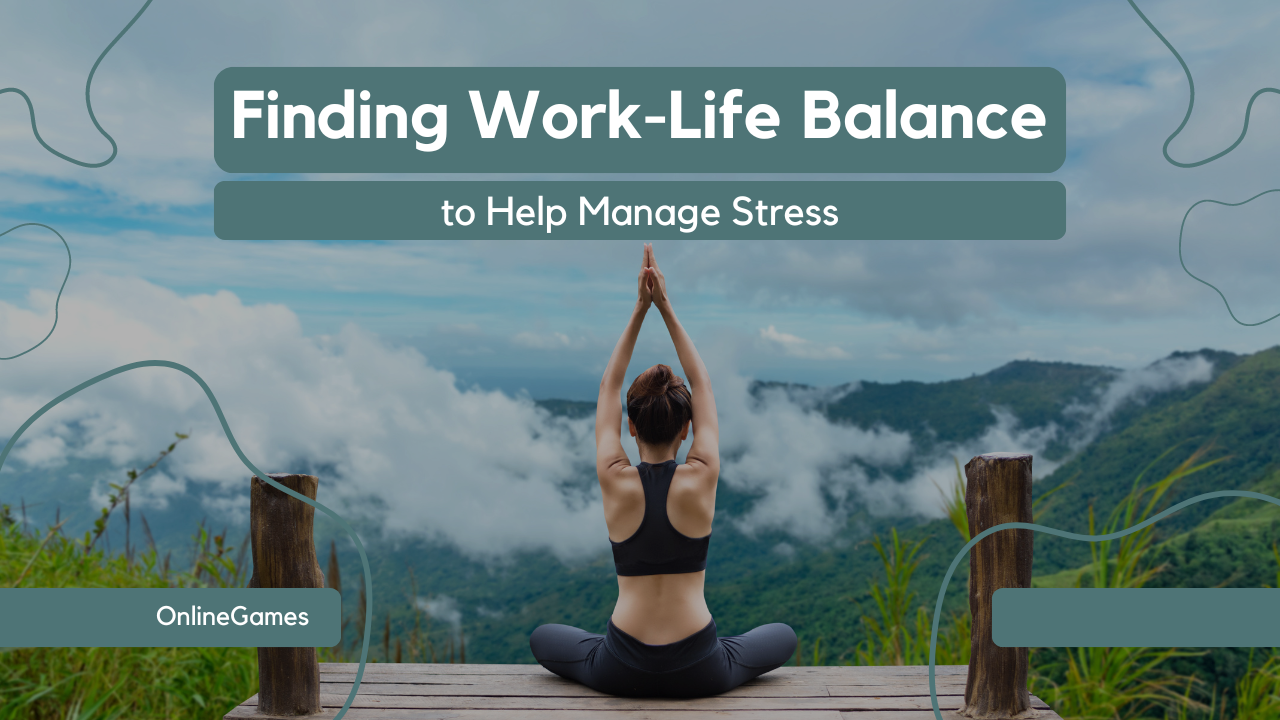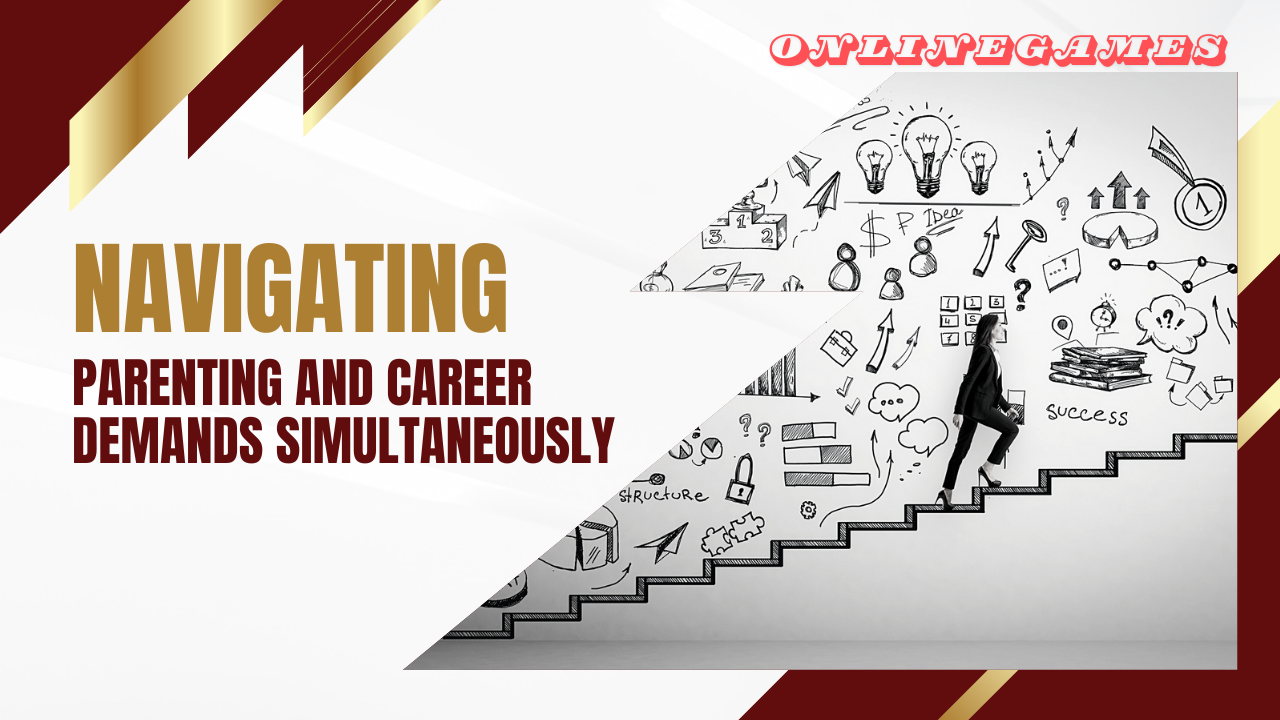In today’s fast-paced world, achieving a work-life balance is crucial for maintaining overall well-being and managing stress effectively. The increasing demands of professional life, coupled with personal responsibilities, often lead to a state of chronic stress that can impact both physical and mental health. This article explores practical strategies to achieve a healthy balance between work and personal life, helping to manage stress and enhance overall quality of life.
Understanding the Importance of Work-Life Balance
Defining Work-Life Balance
Work-life balance refers to the equilibrium between professional obligations and personal activities, ensuring that neither aspect dominates the other. It involves managing work commitments without sacrificing personal time, relationships, or self-care. A balanced life allows individuals to fulfil their professional duties while also engaging in activities that promote relaxation, joy, and personal growth.
Impact of Imbalance on Stress Levels
An imbalance between work and personal life can lead to chronic stress, which is detrimental to both physical and mental health. Symptoms of stress may include anxiety, depression, fatigue, and a weakened immune system. Over time, chronic stress can lead to serious health conditions such as heart disease, hypertension, and mental health disorders. Finding a balance helps to mitigate these risks and promotes a healthier, more fulfilling life.
Strategies for Achieving Work-Life Balance
1. Set Clear Boundaries
Establish Work Hours: Define clear work hours and stick to them. Avoid checking emails or taking work calls outside of these hours to maintain a distinct separation between work and personal life.
Create a Dedicated Workspace: If you work from home, create a designated workspace that is separate from your living areas. This helps to create a physical boundary between work and relaxation, making it easier to switch off at the end of the day.
Communicate Boundaries: Communicate your availability and work hours to your colleagues and clients. Set expectations around response times and ensure that others respect your boundaries.
2. Prioritize Self-Care
Schedule Regular Breaks: Taking regular breaks throughout the day helps to prevent burnout and maintains productivity. Use break times to stretch, take a walk, or engage in a relaxing activity.
Practice Mindfulness and Meditation: Incorporate mindfulness practices such as meditation, deep breathing, or yoga into your daily routine. These activities can help to reduce stress and promote mental clarity.
Invest in Physical Health: Regular exercise, a balanced diet, and sufficient sleep are essential for managing stress and maintaining overall health. Make time for physical activities that you enjoy and prioritize healthy eating habits.
3. Manage Time Effectively
Use Time Management Tools: Utilize tools such as calendars, to-do lists, and time management apps to organize your tasks and manage your time efficiently. Prioritize tasks based on their importance and deadlines.
Delegate and Outsource: Don’t be afraid to delegate tasks or seek help when necessary. Outsourcing certain tasks can free up time and reduce the pressure of having to do everything yourself.
Avoid Multitasking: Focus on one task at a time to improve efficiency and reduce the stress associated with juggling multiple responsibilities. Concentrating on a single task can help to enhance productivity and produce better results.
4. Cultivate Supportive Relationships
Build a Support Network: Surround yourself with supportive friends, family, and colleagues who can provide encouragement and assistance. A strong support network can help to reduce stress and provide a sense of belonging.
Communicate Effectively: Practice open and honest communication with those around you. Share your challenges and successes, and seek advice or support when needed. Good communication helps to foster understanding and reduce misunderstandings.
Make Time for Loved Ones: Prioritize spending quality time with family and friends. Engaging in social activities and maintaining personal relationships is important for emotional well-being and stress relief.
5. Incorporate Leisure and Hobbies
Schedule Leisure Activities: Make time for activities that you enjoy, such as hobbies, sports, or creative pursuits. Engaging in leisure activities can provide a mental break from work and help to reduce stress.
Explore New Interests: Trying new activities or learning new skills can be invigorating and provide a sense of achievement. It also offers an opportunity to meet new people and expand your social circle.
Balance Work and Play: Ensure that you balance your work commitments with time for play and relaxation. This helps to recharge your energy levels and maintain a positive outlook on life.
Work-Life Balance for Different Life Stages
1. Early Career Professionals
Set Career Goals: Establish clear career goals and create a plan to achieve them. Focus on gaining experience and building skills, but also make time for personal development and relaxation.
Learn to Say No: Avoid overcommitting to work projects or social activities that could lead to burnout. Learn to say no to additional responsibilities that are not aligned with your goals or capacity.
Seek Mentorship: Find a mentor who can provide guidance and support as you navigate your career. A mentor can offer valuable insights and help you maintain a healthy work-life balance.
2. Mid-Career Professionals
Reevaluate Priorities: Take time to reassess your career and personal priorities. Consider whether your current job aligns with your values and long-term goals, and make adjustments as necessary.
Focus on Work-Life Integration: Strive to integrate work and personal life in a way that allows for flexibility and fulfilment. This may involve flexible working hours, remote work options, or seeking roles that offer a better balance.
Invest in Professional Development: Continue to invest in your professional growth by attending workshops, pursuing further education, or seeking new challenges. Maintaining a sense of progress and achievement can contribute to overall well-being.
3. Senior Professionals and Executives
Delegate Responsibilities: As a senior professional or executive, delegate tasks to team members and empower them to take on more responsibility. This allows you to focus on strategic goals and reduces the pressure of day-to-day operations.
Prioritize Health and Wellness: At this stage of your career, it is crucial to prioritize your health and well-being. Schedule regular health check-ups, engage in physical activity, and ensure that you have time for relaxation and self-care.
Plan for the Future: Consider your long-term career plans and retirement goals. Planning for the future can help to reduce stress and provide a sense of security and direction.
Creating a Supportive Work Environment
1. Promote Flexible Work Arrangements
Offer Flexible Hours: Encourage flexible working hours that allow employees to balance their work and personal commitments. Flexible work arrangements can lead to increased job satisfaction and reduced stress levels.
Support Remote Work: Provide opportunities for remote work where possible. Remote work can reduce commuting time and provide employees with a more comfortable and productive work environment.
Implement Job Sharing: Job sharing allows two employees to share the responsibilities of one full-time role. This can provide more flexibility and a better work-life balance for employees.
2. Foster a Positive Workplace Culture
Encourage Work-Life Balance: Promote a culture that values work-life balance and supports employees in achieving it. Encourage managers to lead by example and support their teams in managing workloads and setting boundaries.
Provide Wellness Programs: Offer wellness programs that support physical and mental health, such as fitness classes, mental health resources, and stress management workshops.
Recognize and Reward Employees: Regularly acknowledge and reward employees for their hard work and contributions. Recognition and rewards can boost morale and motivate employees to maintain a healthy balance between work and personal life.
3. Support Employee Development
Offer Professional Development Opportunities: Provide opportunities for employees to develop their skills and advance their careers. This can include training programs, workshops, and mentorship opportunities.
Encourage Continuous Learning: Promote a culture of continuous learning and development. Encourage employees to pursue further education and stay up-to-date with industry trends and best practices.
Provide Career Growth Opportunities: Support employees in their career growth by offering clear pathways for advancement and providing opportunities for new challenges and responsibilities.
Embracing Work-Life Balance
Achieving a work-life balance is essential for managing stress and enhancing overall well-being. By setting clear boundaries, prioritizing self-care, managing time effectively, and fostering supportive relationships, individuals can create a balanced and fulfilling life. Businesses also play a crucial role in supporting work-life balance by promoting flexible work arrangements, fostering a positive workplace culture, and providing opportunities for professional development. Embracing work-life balance not only improves individual health and happiness but also leads to more productive and engaged employees, contributing to the overall success and sustainability of the organization.










